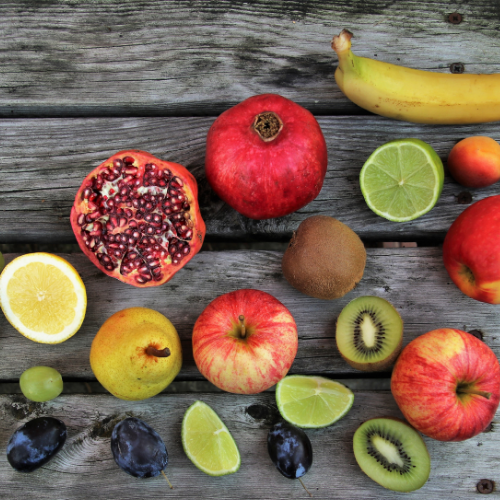Michael Roizen, Michael Crupain, and Ted Spiker contributed
How to improve your diet by planning your meals ahead of time. You’ve probably heard the saying “You are what you eat,” but have you ever heard that you are also when you eat?
Most emphatically not! What to Eat When (2018) argues that when you eat your food is equally as important as what you eat.
This book gives a realistic step-by-step technique for making healthy food choices all over the place, and it does so throughout.
Table of Contents
Introduction
Diets are ineffective. Despite this, you should not stop your efforts to complete your New Year’s resolution right away; rather, this is only a declaration of truth.

Yet, as everyone who has attempted dieting can attest, no matter how much weight you lose, you will almost certainly gain it back at some point in the future.
Yet, this does not imply that you are doomed to remain overweight or that you should abandon your efforts to improve yourself.
Instead, it implies that you must gain the information required to eat properly. Keep in mind that “eating well” and “going on a diet” aren’t usually synonymous as you go through this explanation.
Chapter 1
What You Eat And How It Affects You And Your Body

A widespread myth is that consuming high-fat foods will lead you to gain weight. But if that were the case, you could easily swap out all of your favorite foods for lower-fat alternatives, and everything would be fine.
Nevertheless, because of the effect insulin has on your body, following such a diet would actually increase your chances of gaining weight.
Why? Insulin is necessary for weight control since it is a hormone that regulates how your body eats food. Insulin levels rise as you eat food and then decline once you’ve finished.
Insulin is a hormone that controls blood glucose levels. The nutrients held in your fat cells are released into your bloodstream during this process, providing your brain and other vital organs with the fuel they require to function.
Consuming an excessive amount of refined carbs, which are high in sugar and processed starches, causes your body to produce more insulin, which contributes to weight gain.
Why do we have such a strong hunger for things like cinnamon buns, spaghetti, and sugar if they are so bad for our health? The most straightforward answer is that they have a pleasing flavor.
Nevertheless, another reason we appreciate them is that they provide us with a brief burst of energy. When you eat these foods, your body’s glucose level goes up, which encourages insulin levels to go up.
Following that, our fatty cells work extra hard to remove all of the sugar from our blood by absorbing any excess glucose as well as fatty acids.
The problem is that because these foods are high in sugar, which gives you almost instant satisfaction, your body will use up that energy quickly.
This causes your brain to get worried, leading you to believe you are hungry and causing you to eat more. If you do not begin eating more sugary meals, your body will go into famine mode as your blood sugar levels fall.
This will slow down your metabolism and cause you to hold on to the calories you already have. As you may have guessed, this causes you to gain even more weight.
Now that we’ve covered some of the products that are “good” and “bad” to ingest, it’s time to move on to another topic: the inconsistency of the present dietary advice.
If you’ve ever attempted a few different diet programs or even watched commercials for popular fad diets, you’ve definitely noticed that the notion of what foods are “good” and “wrong” to consume differs from diet to diet.
If you’ve ever seen advertising for popular fad diets, you’ve probably noticed this. So, what exactly does it mean to consume the right meals in order to retain one’s health while simultaneously losing weight?
We’ve already established that diets low in calories or fat provide no advantage, therefore the first thing you should do is stop following such diets. Instead, try these tips for living a healthy lifestyle.
To begin, ensure that your body is obtaining the necessary nutrition. Your body desires nutrients and requires them to grow, so if you don’t receive enough of them, it will tell you to keep eating until you obtain the correct amount.
Because your body requires nutrients to expand, it will tell you to keep eating until you have obtained the proper amount of nutrients.
As a result, if the bulk of the foods in your diet are unhealthy, the effort you put in to ensure proper nutrition will force you to consume more calories than you need, resulting in weight gain.
You can address this issue by seeking out foods that are both high in nutrients and available in more acceptable portions. You should also ingest a couple ounces of protein on a regular basis.
You also need a little quantity of healthy fat, so eat foods like salmon, olive oil, and coconut oil. Salmon, in particular, is a good source of protein due to its high quantities of omega-3 oil.
Omega-3 is known as a “good fat” since it is an unsaturated version of the macronutrient that provides an extraordinary surge of energy.
Remember to eat your vegetables, even if your parents probably harped on this issue all the time when you were a youngster. In addition to being a good source of protein and calcium, vegetables can help you lose weight and enhance the health of the bacteria in your digestive tract.
This is because plant fiber is important for keeping good bacteria and keeping bad bacteria from taking over. Start making friends with your vegetables as soon as possible if you want to reduce inflammation and boost good bacteria in your body.
Another important thing to remember is that your body does not require a lot of carbohydrates. Contrary to popular belief, carbohydrates aren’t intrinsically unhealthy.
But, consuming too many of them might lead to weight gain, so try to restrict your intake. It is recommended that, instead of eating a whole loaf of bread for dinner, you eat only a few slices and pair them with a salad.
Chapter 2
Be Your Blood Sugar’s Buddy

I have diabetes. It’s not great, considering I like sweet cocktails and put three tablespoons of sugar in my coffee in the morning. (In case you’re wondering, I had to give up that habit.)
I put myself at risk of getting a severe hypoglycemic episode if I ingest too much sugar. My blood sugar level drops during these episodes, causing me to feel shaky, weak, disoriented, and cold.
As you can imagine, waking up in that kind of position is not the finest way to start the day. As a result, while I must be more cautious than others, individuals who do not have diabetes are not excused from accountability!
And it’s a sad fact that far too many people begin their days by snubbing their blood sugar levels. This can happen whether you are aware of it or not, but the majority of people are just unaware of what they are doing!
This is because the bulk of us start our mornings with an alarmingly huge serving of sugary and sweet breakfast products.
In the previous chapter, we covered how a person’s blood sugar level can influence their inclination to gain weight.
Even if you aren’t concerned about your weight, keeping a healthy blood sugar level is important for your overall health and should be a focus.
Sugary foods like pancakes and cinnamon buns are delicious, but they are also bad for your blood sugar, as we mentioned in the previous chapter.
And, sadly, this is true even if you do not have diabetes. This is because letting your blood sugar to drop will render any other positive acts you do to start your day null and worthless.
The question now is, what can you do to lessen the negative consequences of this? If you want to be the best version of yourself, you’ll have to give up sweets and carbs first thing in the morning.
You may recall that in the last chapter, we urged you to eat more nutritious foods because this is what your body needs in general.
While this is true, it is especially critical to ensure that your body receives the nutritious nourishment it needs first thing in the morning.
The meal you eat first thing in the morning has a big impact on your blood sugar levels and metabolism for the rest of the day.
If you usually have cinnamon rolls for breakfast, you might want to try other high-protein options, such as scrambled eggs, fresh grapefruit, or yogurt with a fruit topping.
In fact, if you’re in a pinch, a McDonald’s breakfast biscuit will do the trick better than a plate of syrup-covered pancakes! Although starting your day with one of these options may not be the most appealing thing in the world, it is undeniably the healthiest.
Chapter 3
What To Eat And When

We discussed appropriate and inappropriate meals to ingest in previous chapters. Yet, at this point in the conversation, we must return to the main matter at hand, which is when and what to eat.
So, why is it critical to get the time correct? Your body, just like it has a natural sleeping cycle, also has a natural eating cycle that you should follow.
However, while our circadian rhythm is most frequently linked with sleep, it regulates not only your sleeping but also your feeding cycles.
As a result, the first step is to pay attention to the cues offered by your circadian cycle. It implies you must consume breakfast first thing in the morning!
If you’re like most people, you probably find it all too simple to eliminate breakfast from your regular routine. It is much easier to grab a cup of coffee on the way out the door and rush off to begin the day’s job.
Nonetheless, the author’s research shows that people who eat breakfast are healthier than those who do not. In addition, they gain less weight.
“Front loading” is a way to eat calories in which you eat most of your daily calories at your first meal.If you don’t know what “front loading” means, it means eating most of your calories at your first meal of the day.
Dietitian Tamara Duker Freuman says the following things, which are in line with the author’s research:It might seem counterintuitive to eat a bigger breakfast to help you lose weight, but I’ve found that it works well for my patients to get most of their calories and (good) carbs in the morning.
A recent study looked at an extreme variant of the “big breakfast” meal pattern in two groups of overweight women on 1,400 calorie diets. To say the least, the results were intriguing.
The women who were given a 700-calorie breakfast, a 500-calorie lunch, and a 200-calorie dinner lost 2.5 times more weight than the women whose meal pattern was inverted, with 700-calorie meals consisting of the same things as their counterparts ate for breakfast.
As comparison to the group who ate a lot at dinner, persons who ate a lot at breakfast had substantial alterations in their metabolic profile in terms of controlling their cholesterol and blood sugar levels.
People who skip breakfast are more likely to be overweight than those who eat breakfast every day.This intriguing discovery may shed some light on the corpus of evidence supporting this view.
The bottom line is that eating a low-calorie breakfast is not “being good,” but rather destructive. Breakfast isn’t regarded as proper in my opinion if it comprises fewer than 300 high-quality calories, and eating less than that is unlikely to help you lose weight.
Also, dinner is the meal of the day when you should limit your carbohydrate consumption, not breakfast. When you’ve already had a substantial and well-balanced breakfast and lunch, it’s much easier to practice self-control over your dinner food choices and portion sizes.
As a result, increasing the number of calories you consume early in the day and choosing nutritious foods is an excellent way to boost your chances of eating the right foods at the right times.
But there’s one more option that you’ve probably never considered: eating dinner for breakfast. I promise you that you heard accurately.
We nearly always hear the expression in its inverse version; we talk about having breakfast for dinner. On the other hand, those who eat salmon burgers for breakfast are uncommon.
Yet, the author observes that doing so is unquestionably the appropriate thing to do. Food, on the other hand, is unaffected by the passage of time.
There is no such thing as a “breakfast food,” and we only refer to specific meals as “morning foods” or “evening foods” because of our social perception of what is “normal” to eat at different times of the day.
In other words, there is no such thing as “morning food,” and the author proposes that we break free from the unnecessary pressure to conform and make some changes to our usual eating schedule.
Even though it takes some getting used to, starting your day with nutritious “evening” meals can be a fantastic way to get your day off to a great start.
You are welcome to start the day with some grilled chicken! (You can even start with a grilled chicken biscuit if that helps you make the switch!)
But you may ease into it more gradually by incorporating some healthy omelette recipes or berries into your breakfast. Your taste buds may appear to be out of sync at first, but the good news is that you have an infinite amount of food selections to pick from!
You are free to try a variety of new flavor combinations until you find the one that works best for you.
Chapter 4
Summary And Recommendations

Many people want to eat well, but their efforts are frequently in vain because they are provided with inaccurate information, which encourages them to make bad dietary choices.
Both trendy diets and well-intended advice promote their own eating philosophies, the majority of which are either unfounded or hazardous to one’s health.
Through the process of unraveling the facts behind “what to eat when,” the authors’ goal is to counteract misinformation and make healthy eating choices accessible to everyone in the world.
Your eating routines only need to be reorganized, and all you have to do is let go of your preconceived notions about food.
To begin, educate yourself about the consequences that high-calorie foods have on your body. The next step is to be gentle with your blood sugar by avoiding meals that are known to cause rapid spikes and drops in blood sugar levels.
(This includes avoiding sweets first thing in the morning!) Finally, pay attention to your body’s circadian cycle by eating the right meals at the right times.
Eating calories early in the day and eating what you would normally have for dinner for breakfast may seem unusual at first, but it will be advantageous in the long run.
These nutritious meal options can help you make the most of your energy, maintain blood sugar stability, and contribute to your weight loss efforts.
What To Eat When: A Book Overview Important Concepts
The Foundations of Food
There are several distinct types that can be discovered within your food. Food, for example, can be categorized into micronutrients and macronutrients in a broader sense.
The body cannot function without micronutrients, which are vitamins and minerals. Macronutrients, on the other hand, are further classified into three categories.
Carbohydrates, commonly known as carbs, are molecules that human bodies can break down into glucose. Because glucose is one of our body’s primary sources of energy, it is critical for the functions that we perform on a daily basis.
The second type of macronutrient is protein, which may be found in foods like nuts, meat, and other animal products. Yet, protein’s primary function is to be broken down into amino acids, which are the building blocks of the body.
When the body demands it, protein can be used as a supplemental source of energy; nevertheless, its primary role is to be broken down.
One of the reasons you should try to incorporate a wide variety of foods into your diet is because the amino acids contained in protein from different food sources can differ.
Fat is the last and most important macronutrient. Fat is a good choice for the body to ingest as a source of fuel because it contains much more calories than either protein or carbohydrates.
We may reduce the level of inflammation in our bodies by eating the right kinds of lipids, as well as our risk of acquiring cancer and cardiovascular disease.
Blood Sugar Levels and Fat Storage
When people ingest an excessive amount of carbs all at once, they experience a surge in their blood sugar levels. This spike sets off a chain reaction within the body that has a variety of impacts.
In response to an increase in blood sugar levels, the body produces insulin.Insulin’s main job is to move sugar to the parts of the body that need it, which are usually the muscles.
It can also be used to store sugar in the fat cells of the body.The passage of time is one of the most major factors that contribute to weight gain.
Insulin resistance can develop over time if the insulin response is used excessively and for an extended period of time. a condition in which your body is unable to regulate blood sugar levels as well as it previously did.
Diabetes and other serious disorders might develop as a result of having higher blood sugar levels over time.
It is important to remember that as the day goes on, the body becomes less sensitive to insulin. This means that eating high-sugar snacks before bed will do much more damage than eating a breakfast with more carbs.
If you want to lose weight, one of the best first steps you can take is to lower your daily carbohydrate intake.
The 24-Hour Rhythm
Your circadian rhythm affects many parts of your health, like how well you sleep. It also influences the time of day when we begin to feel hungry.
One study conducted by the University of Turin revealed that eating early in the day and consuming meals while the sun was up were factors that prevented weight gain among the 1200 participants in one of their investigations.
Synopsis
• The diet industry loves to push ideas about what to eat, but they don’t care about when you should eat
• A gram of fat has 2.25 times the calories as a gram of protein or carbohydrate.
• Unsaturated fat, which is found in foods like salmon, olives, avocados, and almonds, should be preferred in your diet over saturated fat
• Insulin is responsible for fat accumulation because our systems assume there will be a time in the future when food will be scarce and it wants you to have ample reserves.
• Individuals who consume more food early in the day are more likely to be in a healthier overall state.
• Even if we consume the same number of calories throughout the day, intermittent fasting may have a positive effect on our body weight
• Many studies have shown that reducing the amount of time available for eating from 14 to 11 hours will help with weight loss.
• Eating dinner for breakfast is a good way to get more filling meals earlier in the day.Eat a meal the size of what you would normally have for dinner, but do it for breakfast.
• If you want to begin modifying your eating habits, keep a food journal for a few days that describes everything you eat during the day.
• Because there is a 20-minute gap between eating and feeling full, this explains the link between eating too rapidly and overeating.
• Replace some of your go-to items with healthier alternatives that you can keep in your cupboard.

”Widen The Window”(2019) Book Summary
Window ...A pioneering researcher provides us with a fresh understanding of stress and trauma in addition to the means to recover and thrive.

Buy this book @ Amazon: ”What To Eat When”: A Strategic Plan to Improve Your Health and Life Through Food
Read more book summaries: “If a human has no direction, every wind is a fresh breeze” ― lenfantvivant
“Thought is only an abstraction representing a fraction of what is.” ― Lenfantvivant
”Widen The Window”(2019) Book Summary
Summary of “Atomic Habits” (2018)
Summary of:”No Matter Where You Go, There You Are ”By J. L. Mallory (2016)
Summary of “Atomic Habits” (2018)
“When You Die, Who Will Cry?” Book Summary For Robin Sharma (1999)
Psytify
Evolve to your finest

